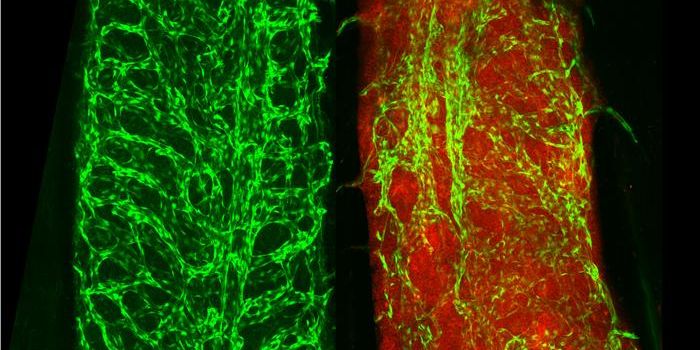New treatment to reduce hair loss during chemotherapy
Chemotherapy-induced hair loss is debatably one of the more devastating psychologically-visible difficulties of cancer. However, new research from the laboratory of Professor Ralf Paus of the Centre for Dermatology Research at The University of Manchester may have discovered a technique to spare hair follicles. The research was published recently in EMBO Molecular Medicine.
Many cancer patients undergoing chemotherapy with a class of drugs called taxanes lose their hair because of the damage that taxanes cause to hair follicles. As Dr. Talveen Purba, the study’s lead author, explains: "A pivotal part of our study was to first get to grips with how exactly hair follicles responded to taxane chemotherapy, and we found that the specialized dividing cells at the base of the hair follicle that are critical for producing hair itself, and the stem cells from which they arise, are most vulnerable to taxanes. Therefore, we must protect these cells most from undesired chemotherapy effects -- but so that the cancer does not profit from it."
The technique Dr. Purba and team ended up devising takes advantage of the properties of CDK4/6 inhibitors, a class of cancer drugs that stop cell division through target cancer therapies. Dr. Purba elaborates, "Although at first this seems counterintuitive, we found that CDK4/6 inhibitors can be used temporarily to halt cell division without promoting additional toxic effects in the hair follicle. When we bathed organ-cultured human scalp hair follicles in CDK4/6 inhibitors, the hair follicles were much less susceptible to the damaging effects of taxanes."
While some patients use cool caps to attempt to prevent hair loss during chemotherapy, the authors hope their research will motivate pharmacological improvements, perhaps in the form of externally applicable medicines that will slow or temporarily suspend cell division in the scalp hair follicles. Although patients agree that hair loss is a significant side effect of chemotherapy, the topic still has yet to receive much funding.
Dr. Purba said: "Despite the fact that taxanes have been used in the clinic for decades, and have long been known to cause hair loss, we're only now scratching the surface of how they damage the human hair follicle. We also don't really know why some patients show greater hair loss than others even though they get the same drug and drug-dose, and why it is that certain chemotherapy regimens and drug combinations have much worse outcomes than others. We need time to further develop approaches like this to not only prevent hair loss, but promote hair follicle regeneration in patients who have already lost their hair due to chemotherapy."
Sources: Science Daily, EMBO Molecular Medicine









